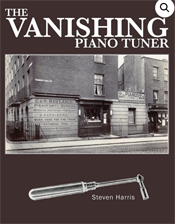Charles Foulds opened the first Foulds shop in Chapel Bar, Nottingham in 1893, when he bought the Nottingham branch of William Orme's business. The present Foulds shop in Irongate, Derby opened in 1908, and there were to be further branches in Lincoln, Heanor, Mansfield and Eastwood.
During the period after the First World War, when Arthur Foulds joined his father in the business, there came a period of depression which was to prove fatal for so many businesses, and one by one the branches closed, until finally the Nottingham shop, now one of the country's biggest music shops had to close.
The Derby shop survived and prospered under its manager James Locke until Arthur Foulds took over management in 1945 on the death of his father, to be joined in 1950 by his own son Philip.
The business established itself as a complete music store pre-eminent in the area, with the growth of new areas such as the emerging Rock and Roll business.
Today the business is run by Philip's son James. The company has pursued a path of building on its traditional strengths - pianos, orchestral and band instruments and music - with a special emphasis on developing highly competitive rental schemes for instruments and pianos.
In 1993 - the centenary year of the Company, Foulds added the next door premises to open a new guitar shop to build on the rapid increase in its guitar business, and this has become renowned particularly for its acoustic and jazz guitar stock and expertise.



